Hello, and welcome to the second part of this year's Christmas Mega-Blog. If you missed Part One, chronicling my plans for the festive season, you can find it here. If you're new to my Christmas Mega-Blogs, you'll also find a handy explanation of the concept there. To save getting too bogged down with formalities here, though, let's leap straight into the bulk of this blog:
Part Two - The Festive Final Fantasy Retrospective
Those of you who've followed me for any length of time will be aware that I've got something of a history with the Final Fantasy franchise. Eleven years of history, to be precise. It all began in the winter of 2000, when I visited a local video game store in search of something to play over the impending school Christmas holiday. Sitting in the bargain bin was a second-hand copy of Final Fantasy VII, priced at a respectable £10. I remember picking it up and taking it to the counter, telling myself, "Well, it got good reviews in the Official PlayStation Magazine, and £10 for three discs seems like a good deal." Little did I know that it would turn out to be one of the best tenners I ever spent. Final Fantasy VII ignited a passion for games within me, and encouraged me to seek out more games tied to this incredible title. In the eleven years between then and now, I've played every main entry in the series (besides the MMOs, XI and XIV) as well as several of the spin-offs. But I've never written anything extensive covering my opinions of the franchise as a whole - until now.
I've been wanting to write something like this for a long time. The idea initially came to me last year, when I was playing through the latest addition to the core franchise, Final Fantasy XIII. While playing that game, I found myself constantly drawing comparisons with other Final Fantasy titles, and eventually got to thinking, "maybe I should post some kind of definitive personal Final Fantasy hierarchy." Christmas seems like the best time of year for me to compile something like this, too - like I said above, my relationship with the franchise began around this time of year, and several Final Fantasy games have constituted Christmas presents between then and now.
What follows is a game-by-game rundown of my general opinions of each Final Fantasy game. I've restricted this to core franchise entries only, because otherwise I'd be writing this for the best part of a week. In the spirit of Giant Bomb's review system, I've also given each game a star rating out of five, to give you a rough idea of how the games rank for me personally.
Final Fantasy
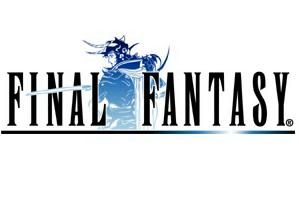
What I Like - More than anything, I really dig the simple, bare-bones nature of Final Fantasy compared to later games in the franchise. There's nothing especially original about the narrative here, simply the conventional set-up of a world in peril and four chosen warriors destined to combat the forces of evil. Its mechanics are pretty rudimentary too - the combat is very much no-frills, condensed down to six character classes and limited to physical attacks, magic and items. Stripped of the melodrama and complexity, the core components of the Final Fantasy formula really do shine through, and they're still surprisingly engaging all these years later. Admittedly, I played the PS1 version of Final Fantasy (which is in itself a port of the remastered Wonderswan Color version), so I can't speak for the game as it was in 1986. I had a lot of fun playing it, and it was nice to experience the traditional trappings of a JRPG without having to get caught up in a convoluted storyline.
What I Don't - There are definitely some aspects of Final Fantasy that haven't aged particularly well. Top of my list of complaints is the game's poor attempts at giving the player direction, with many story-progressing events tucked away in pretty arbitrary corners. While the lack of a deep story is somewhat refreshing, it also robs the game of any real kind of identity, and next to the finely-characterised worlds of later Final Fantasy titles, it's a noticeable problem. Beyond those two issues, though, there's not much I can criticise the game for. I guess I could pick fault with the fact that the simplistic nature of the battle system discouraged me from playing it for long stretches, but seeing as these days it's at its most readily available on handheld platforms that encourage playing in short bursts, it doesn't really seem like a fair gripe.

Final Fantasy II
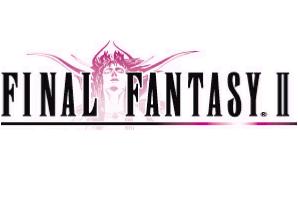
What I Like - Final Fantasy II is probably the most mechanically innovative Final Fantasy game, at least up until the release of Final Fantasy XII. I respect the game a lot for what it endeavoured to do with its character development mechanics, which pre-dated the Elder Scrolls' similar approach debuted in Daggerfall by about ten years. Just like in those games, a character's proficiency in a skill is determined by their use of techniques tied to those skills - attack and your Strength increases, get hit and your total HP will go up, use healing spells to boost your Spirit, and so on. I also respect Final Fantasy II for replacing the generic backdrop of its predecessor with a much more fleshed-out gameworld. The pretext of a ruthless empire trying to take hold of other kingdoms by force sets up some motivation behind the actions of the playable characters, and provides a much more interesting backdrop for the action. It also pre-empts the plots of many future Final Fantasies, including Final Fantasy IV, Final Fantasy VI, and Final Fantasy VII, all of which employ the 'overbearing empire seeks world domination' motif.
What I Don't - Unfortunately for Final Fantasy II, a lot of the theory behind its innovative mechanics doesn't work in practice. The forward-thinking logic that governs character development, for example, is broken in two major ways. For a start, the game does a terrible job of pacing itself, to the point where simply fighting the hordes of enemies thrown at you isn't enough to keep your characters ahead of the curve. This invariably leads to a need to game the system, encouraging the player to attack and cast magic on their own party in order to force-boost stats and keep up with the game's expectations. This leads me nicely into the second issue with the system - the fact that it's incredibly easy to abuse. Through use of the aforementioned exploit, it really isn't difficult to power-level your characters' statistics and put yourself in a position where the game becomes ridiculously easy. These mechanical issues aside, it doesn't help that Final Fantasy II's characters and plot are completely forgettable. While the cast of characters may have names and motives now, none of them have any distinct personalities that render them memorable. Similarly, the plot is a step up from that of the first Final Fantasy in terms of its drive and focus, but while playing through the game I couldn't help but think that the other Final Fantasy games I mentioned above have told the same story in much better ways. All of these factors leave me with less-than-fond memories of the series' sophomore outing.

Final Fantasy III
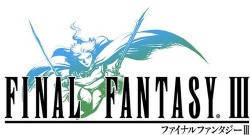
What I Like - The best thing about Final Fantasy III is its inception of the now-classic Job system. An interesting hybrid of Final Fantasy's clearly-defined character classes and Final Fantasy II's blank-slate cast, Final Fantasy III allows the player to change the class of their characters at any time in order to custom-build a balanced party equipped for any situation. For the first time, the wealth of different jobs on offer brought some welcome new levels of complexity to the series' battle mechanics, with each job having its own pre-defined set of skills to ensure it played differently from all the others. For me personally, this change went a long way towards making Final Fantasy III's combat a more tactical affair, and less a simple trading of blows in the manner of the first two games. Also, while the plot and world are painfully generic for the most part (see below)
What I Don't - Final Fantasy III definitely makes an attempt to get away from the more awkward aspects of Final Fantasy II and go back to the proven formula of the first Final Fantasy. While that does sometimes work to its credit, it also holds the game back in some respects. The most notable area that Final Fantasy III suffers in this respect is in the characterisation of its world. Gone are the warring factions and distinct individuality of Final Fantasy II's game world, only to be replaced by another generic environment and unnamed evil in the same vein as the first game. This is even more of a problem in Final Fantasy III though, because unlike the original Final Fantasy, this game feels like it should really have some kind of identity (at least it does in the DS release, which goes to the trouble of developing and naming unique characters to replace the nameless Onion Knights of the NES original). In the absence of one, it leaves me thinking about what Final Fantasy III might have been.

Final Fantasy IV
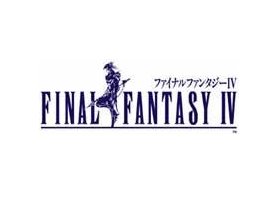
What I Like - Final Fantasy IV is essentially a template - the mould from which every subsequent Final Fantasy game has been cast. That's with good reason, because I think it's the first example of a Final Fantasy game that really nails what the series is all about. It's the first Final Fantasy game to deliver a meaningful and well-developed plot, combining Final Fantasy II's overbearing empire contrivance with a grand sense of scope, and backing it up with a memorable cast of distinct and different personalities. The combat adopts a comfortable middle ground between the simple accessibility of the original Final Fantasy and the strategic class-based individual skills of Final Fantasy III. Not to mention Final Fantasy IV is the inaugural outing of the franchise's famed Active Time Battle system, a faster-paced alternative to turn-based combat that gives battles a sense of urgency. The result of this winning combination of story, characters and combat is a significant improvement over the first three Final Fantasy games, and a solid foundation for Square to build upon.
What I Don't - There's very little about Final Fantasy IV that I don't like. My main complaints are directed at some of the game's characters, around a quarter of whom aren't really fleshed out and seem to exist for the sole purpose of offering some kind of combat support for Cecil at specific points in the game (Palom and Porom, for instance). The game's narrative also forces several characters to exit and enter at certain points, and the result of this is that the player is never given an opportunity to select their own party members. Given the game's obvious strengths, though, these complaints seem like pedantry. Even more pedantic are some of the other criticisms I could level at the PS1 port that I played, which suffered from painfully long initial loading times and translation issues such as items with confusing names. I'm sure all of these issues have been addressed in subsequent remakes and remasters, though, making them almost completely irrelevant.

Final Fantasy V
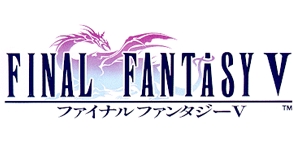
What I Like - Having only played and completed it a couple of years ago, Final Fantasy V is still pretty fresh in my mind, and as a result so are its various high points. The one most worth mentioning is its re-incorporation (and marked improvement) of Final Fantasy III's Job system. Final Fantasy V allows the player not only to switch characters' classes, but also to learn Job-specific skills, which can then be employed alongside the innate skills of a different job to create thousands of different potential character load-outs. This level of customisation and flexibility is, I suppose, a precursor to the Materia system of Final Fantasy VII. The game also present three of the franchise's best characters in the forms of Bartz, Galuf and Faris, all of whom have very distinct personalities and interesting backgrounds. Finally, I have to give some love to the game's soundtrack. The first four Final Fantasy games had good music, to be sure, but in my opinion Final Fantasy V marks the start of Nobuo Uematsu's compositional peak.
What I Don't - The weakest aspect of Final Fantasy V for me was its story, or more specifically the execution of its story. To say the plot consists of contrived cliché after contrived cliché would almost be an understatement, particularly in the game's first third - I've never known a band of adventurers experience so much misfortune in such a short space of time. While three of the main characters are incredibly vibrant and memorable, the other two couldn't be more different. Reina in particular is never anything more than the stereotypical princess/female companion archetype, and Galuf's granddaughter Krile is... well, Galuf's granddaughter, and not really anything else. Even in spite of these shortcomings, though, there's an undeniable charm to Final Fantasy V, such that I can't help but love it.

Final Fantasy VI
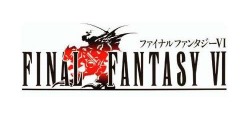
What I Like - Final Fantasy VI is held up by many fans as the pinnacle of the series, and I have to admit, it's kind of hard to argue with them. So many things about this game just work, on every conceivable level. The combat mechanics strike a perfect blend between character-specific class-type skills, a completely customisable Magic-learning system, and the unique effects of the game's numerous Espers. The narrative is tight, interesting, and ties the gameplay mechanics to the world in a way that makes perfect sense. It also completely subverts JRPG tradition at its halfway point, when the world you're trying to save is actually destroyed. It boasts a roster of around fifteen playable characters, each of which has such a distinct personality and interesting history that you're left wishing you could keep them all in the party all the time. Its primary villain, Kefka, is one of the best game villains ever, entertaining and threatening in equal measure. Its musical score serves the plot almost as much as the written narrative does - perhaps even more so, with its intricate and distinctive character leitmotifs ranking among Uematsu's greatest ever compositions. Every aspect of this game just complements every other aspect of it so perfectly.
What I Don't - It's hard to level any kind of criticism at Final Fantasy VI, or at least, it's hard to do so without sounding like a nitpicker. I remember the back-end of the game having some serious pacing issues, to the point where I was forced to grind out about ten levels before I could even think about tackling the final dungeon in order to complete the game. Combat at the start of the game can be very over-reliant on character-based skills, but that's understandable given the position of magic in the narrative. Those two minor irritations aside, I really can't think of any other issues I had with Final Fantasy VI. It really is that great.

Final Fantasy VII
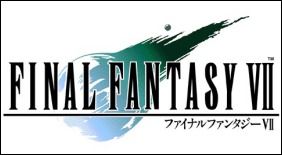
What I Like - Final Fantasy VII will always hold a very special place in my heart. As such, it proves difficult for me to judge in an objective fashion, but given the experience I've had of that in my Enduring Final Fantasy VII blog series, I feel better-equipped to do so now than ever before. Final Fantasy VII has been referred to as a refurbished version of Final Fantasy VI, and in some ways that's true - the strength of the overarching narrative, the memorable characters, and the majestic musical score built out of leitmotifs all echo aspects of this game's immediate predecessor. Most of the Final Fantasy VII's true strengths exist in the things it did that no other game had done before it, though - for example, the unparalleled versatility of the Materia system, the unique ways in which the game plays with the relationship between interactivity and narrative, side-quests that were essentially entire games in and of themselves, and the incredibly bold move of unexpectedly (and permanently) killing off one of the main characters half-way through. For me personally, though, Final Fantasy VII holds an additional significance. It's the game that turned me on to games in a big way, the game that taught me the power of a well-executed interactive narrative, and the game that pulled my ten-year-old self out of the doldrums and back into feeling passionate about things I loved, particularly reading. It's this profound impact that will forever ensure Final Fantasy VII remains my favourite Final Fantasy, even if it isn't the best.
What I Don't - I've never attempted to profess that Final Fantasy VII is perfect, because it plainly isn't. The game is plagued by translation issues that probably have a negative impact on the game's ability to tell its story effectively. While its 2D pre-rendered backdrops remain appealing to the eye, the game's primitive 3D character models haven't weathered the test of time quite so well. The primary cast of characters is exceptionally well fleshed-out, but that only serves to make most of the supporting cast seem even more one-dimensional than they are. Perhaps most of all though, Final Fantasy VII's great qualities are all too often ignored due to the rabid fanboy adoration and equally rabid vitriol that dominate internet discussions about the game. In the eleven years I've owned, played and loved Final Fantasy VII, it's this vocal group that has detrimentally affected my feelings for the game more than anything else. More people should accept Final Fantasy VII for what it is - a great game, and a genuinely revolutionary JRPG, but by no means the greatest game of all time.

Final Fantasy VIII
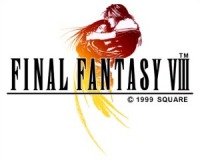
What I Like - Back when I first played Final Fantasy VIII, I was absolutely blown away by the graphics. Returning to it now, I still think it looks incredible - between the bright pre-rendered backdrops, the detailed 3D models and the stunning FMV sequences, I'd be willing to go as far as to say that it's the best-looking game on the original PlayStation. Away from the visual aspects of the game, I really liked the premise behind the game's narrative, and was impressed by how tightly interwoven the various plot threads were. The Guardian Forces-based gameplay mechanics were surprisingly engaging, and I had a lot of love for the Triple Triad card game (albeit not quite as much love as I have for Final Fantasy IX's Tetra Master card game).
What I Don't - It seems like for everything I love about Final Fantasy VIII, there's another aspect of it that I hate which forces my opinion back to neutrality. While I appreciated the direction and complexity of the storyline, I found myself constantly irritated by the cast of primary characters, most of whom are little more than caricatures and archetypes recycled from earlier Final Fantasy games and other JRPGs in general. I'd argue that Squall, Rinoa and Seifer are the only characters I really cared about in Final Fantasy VIII, and in the case of the first two, that's only because of the development of their relationship. The graphics blew me away, but I found the musical score to be comparatively weak (not bad, just not up to the same high standards of the soundtracks of Final Fantasies VI and VII). The GFs and Magic junctioning were pretty innovative and interesting to experiment with, but the concept of Magic drawing was an inconvenience. Furthermore, I found that the necessity of keeping Draw in one ability slot prevented me from really experimenting with potential character load-out combinations, which seemed counter-intuitive given the freedom that the Junctioning system is supposed to offer. I do like Final Fantasy VIII on the whole. I just wish the game wasn't so determined to make me not care about it.

Final Fantasy IX
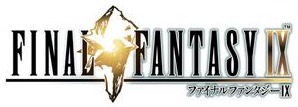
What I Like - Final Fantasy IX is the best Final Fantasy game. I really, honestly think it is. It takes all the recurring core elements from throughout the series, polishes them to a perfect mirror sheen, and then combines them all into a faithful homage to everything that came before it. It eschews the flexibility of the other PS1 Final Fantasies in favour of returning to a class-based system, assigning each of its eight playable characters a specific role and encouraging the player to find their own balanced combat party. Gone are the borderline cyberpunk themes, in favour of an aesthetic that's much closer to the earlier games in the franchise. Combine these traditional trappings with a knock-out narrative, perfectly-crafted characters, gorgeous visuals, an incredible soundtrack, and an almost indecent amount of side-quests and distractions, and what you have is Final Fantasy IX. As a fan of everything the franchise has represented over the years, this game best embodies what it means to be a Final Fantasy game in my eyes. Even Hironobu Sakaguchi, the father of Final Fantasy himself, has declared this to be his favourite game in the series. Surely that's gotta count for something.
What I Don't - Sitting here writing this blog, this is the first game where I've had to really stop and think, "Is there anything about this that I don't like?". Even then, I find it impossible to pick on anything major, because every aspect of Final Fantasy IX seems so deliberate and perfect to me. I guess a fair complaint to make of it is that the game features some noticeably long loading times when heading into battle, but that's most likely a result of the PlayStation's hardware limitations, and as a consequence it seems unfair to criticise the game for it. After almost an hour of dedicated thought, that really is the best I can do. That really is how flawless I think this game is.

Final Fantasy X
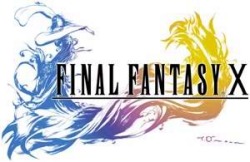
What I Like - It's impossible to talk about Final Fantasy X without mentioning its aesthetics. As somebody who adopted a PS2 almost specifically for this game, it was incredible to see the huge graphical leap it made over Final Fantasy IX. I particularly loved the Oriental aesthetic attributed to many of the game's environments - a welcome change from cyberpunk metropolises and Elizabethan castle-cities. Thankfully, Final Fantasy X wasn't just a pretty face - there was a very solid game backing it all up. The game's innovative Sphere Grid character development system provided an interesting alternative to both class-based characters and blank-slate character development - by forcing each character down a specific progression path, yet also offering the player a chance to unlock the whole grid later in the game, it effectively permitted both approaches simultaneously. The game's combat returned to a turn-based battle system, but also permitted the player to switch characters in and out of a fight at any time. This, coupled with many enemies having very specific weaknesses, made for one of the series' most tactically-driven combat systems yet. Final Fantasy X is also probably the biggest Final Fantasy yet, at least in terms of side-quests. I spent over 130 hours with the game back when I played it through, and I barely scratched the surface of the extra activities.
What I Don't - While the new capabilities of the PS2 might have done wonders for some aspects of Final Fantasy X's design, one thing the game could have done without was the inclusion of voice acting. Final Fantasy X's voice-overs were very hit and miss for me - some (like Wakka, Kimahri and Auron) were fine, while others (most notably Tidus, Yuna and Rikku) just grated on me throughout the entire game. It probably seems like a minor complaint, but it really did kill the immersion factor for me. I also found some of the game's late plot twists seriously tested my suspension of disbelief, although it was ultimately well worth it - the end result was probably my favourite video game ending ever.

Final Fantasy X-2
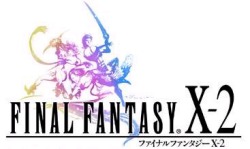
What I Like - Arguably Final Fantasy X-2's sole redeeming feature is the fact that it's actually a blast to play. Returning to the franchise's established ATB battle system, Final Fantasy X-2 turns all the dials up to eleven and delivers a frantic, trigger-finger combat experience. Playing the game, I got the impression that this is what Square had always wanted the ATB system to be - they'd just never been able to achieve it on older hardware. On top of this perfected incarnation of Active Time Battle is a redressed Job system known as Dresspheres, the big innovation here being that it's now possible to switch Jobs mid-battle. Some of its more involved side-quests are also well worth the player's time, particularly the ones featuring heavy combat aspects (see where this is going?). I guess that since it mostly recycles the art assets from Final Fantasy X, we can also say that it looks nice.
What I Don't - Oh God, where do I start? Apart from the fighting, pretty much every single aspect of Final Fantasy X-2 is dire. The core storyline is essentially one long, elaborate ret-con that completely nullifies the profound impact of Final Fantasy X's ending. The re-imagined characters of Yuna and Rikku, along with newcomer Paine, are total bastardisations of who those characters were in the original game. In many cases, the game seems to revel in the fact that it's turning revered characters into nothing more than eye candy. A significant portion of the game is made up of optional side-quests, and a significant number of those side-quests are trivial and pointless in the grand scheme of things. To call Final Fantasy X-2 an abomination would be misguided in light of its brilliant combat system, but that really is the only thing preventing it from plumbing those depths.

Final Fantasy XII
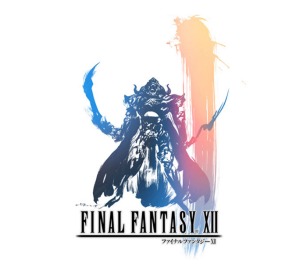
What I Like - I realise I'm in the minority here, but personally I think Final Fantasy XII is one of the absolute high points of the entire franchise. In terms of its overall quality and vision, I think it stands alongside Final Fantasy VI and Final Fantasy IX as one of the best in the series. The game took a hell of a lot of risks in an attempt to breathe new life into the JRPG formula, and I think most of them worked brilliantly. The new real-time combat and gambit systems do a great job of translating old JRPG values into a more modern combat engine, and combined with the Licence Board it allows for a lot of party customisation. The story is another high point for me as well, largely abandoning the melodramatic interpersonal drama of other games in the series in favour of showcasing a much larger-scale imperial conflict with a sense of maturity and vision that I can't help but respect. Among the game's cast are some of the series' best characters, including Balthier, Fran and Basch. Throw all of these components together and you have a game that really does push some boundaries, and for the most part comes off better for it.
What I Don't - The highs of Final Fantasy XII are so high for me that the lows seem almost trivial by comparison. I would probably complain about the grind-heavy nature of the combat, were it not for the fact that I personally loved fighting so much that I never tired of the new mechanics. I would probably complain about Vaan being cast in the role of annoying androgynous protagonist, but given that the game abandons any pretence of having a main character around ten hours in, it doesn't really seem worth moaning about. All that leaves, as far as I can tell, is the justified complaint that apart from Mark Hunting, the game doesn't boast very many side quests.

Final Fantasy XIII
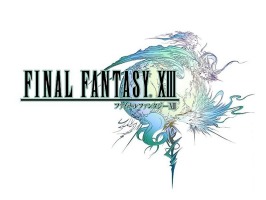
What I Like - When I think of Final Fantasy XIII, I think of that battle system. Final Fantasy XIII's battle system is one of my favourites across the whole series, for the simple reason that there is absolutely no filler present in it. Every single skill and spell and technique is not only useful, it's invariably essential. It moves at a break-neck pace, it demands concentration and strategy, and I love it. At this point it probably goes without saying that Final Fantasy XIII is a gorgeous game - we've all seen screenshots, after all. if I had to distil my opinion of Final Fantasy XIII down into two points, it would probably be those - the fighting is fun, and it looks nice.
What I Don't - My biggest problem with Final Fantasy XIII is its intense level of focus, to the point where it's actually detrimental to the game's sense of discovery and exploration. We're all aware of the game's over-linear nature, its refusal to allow the player to backtrack, the complete absence of any opportunity to just kick back and relax for a bit. It's a shame, because Cocoon and Pulse seem like really interesting worlds with rich and detailed histories. They're places that I really want to explore, but I'm not allowed to, and that sucks. Aside from the lack of freedom, I was also really disappointed with the overly melodramatic characters, something that I feel the Final Fantasy games have largely avoided over their twenty-five year history. Call me crazy, but I'm actually looking forward to playing Final Fantasy XIII-2 next year to see if the game manages to correct these issues. Probably not, but hey, a guy can dream.

---
Whoa. That took a lot longer than I anticipated.
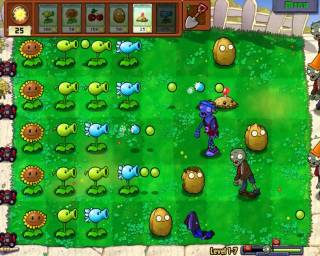
Anyway, here ends the second part of my 2011 Christmas Mega-Blog. Be sure to check back tomorrow for the third and final part, for which I've also got something pretty original and cool planned (and don't worry, it's not a festive retrospective of all the Final Fantasy spin-offs!). In the meantime, seeing as it's Christmas, I'd like to partake in some gift giving here on Giant Bomb. So, I'm going to host a little Christmas give-away competition. I want you to tell me which core Final Fantasy game is your favourite, with good reasons why. I'll pick a winner shortly after posting the third and final part of my Christmas Mega-Blog tomorrow, and that person will win a copy of Plants vs Zombies on Steam. So, if you want to get your tower defence on, leave your considered answer in the comments below. As always, thanks very much for reading. I hope all of you had a fantastic Christmas Day today, and I hope to see you around on the site very soon.
Dan
---
Currently playing - Halo: Combat Evolved (XBOX)
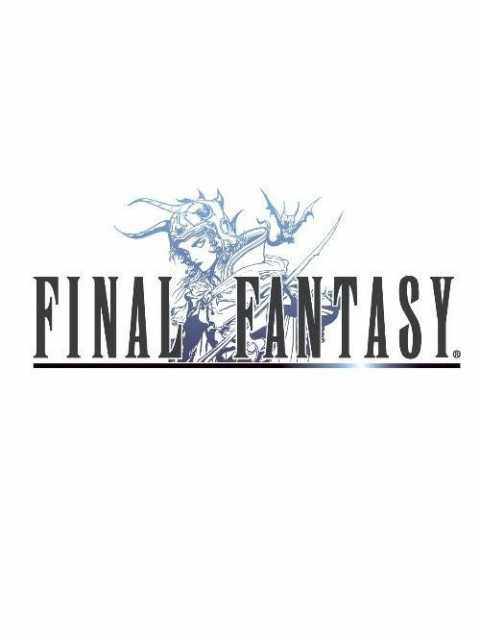
Log in to comment